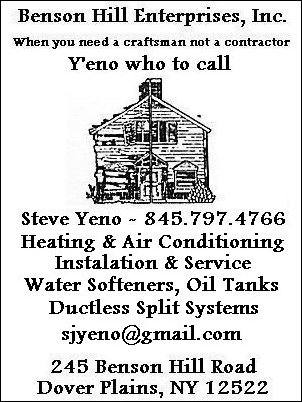
Continues Governors Historic Investment in Clean Water Infrastructure
Governor Andrew M. Cuomo today announced that $275 million in grant funding is available to municipalities with infrastructure projects that protect or improve water quality and/or public health. This funding, available through the Water Infrastructure Improvement Act and the Intermunicipal Water Infrastructure Grants Program, is part of the Governor’s historic $2.5 billion Clean Water Infrastructure Act of 2017.
“Water infrastructure is the key to economic development and lays the groundwork for future growth and prosperity,” Governor Cuomo said. “We are committed to ensuring that all New Yorkers have access to clean water, and I urge local leaders to take advantage of these grant opportunities to make a real difference for the municipalities they serve.”
To date, more than $1 billion has been allocated through the Clean Water Infrastructure Act to address clean water and drinking water challenges in New York communities. Projects eligible for grant funding include critical water infrastructure projects that address cyanotoxins associated with harmful algal blooms, combined and/or sanitary sewer overflows and impacts from flooding, as well as the rehabilitation of contaminated water supplies.
Municipalities, county or town improvement districts and certain other entities are eligible to apply for funding.
The New York State Environmental Facilities Corporation and Department of Health will assess all projects for which applications have been received. They will evaluate them based on several factors, including protection of water quality, benefits to public health and readiness to proceed expeditiously.
Water Infrastructure Improvement Act Wastewater Infrastructure Projects
Depending on the estimated cost of the project, successful applicants may receive Water Infrastructure Improvement Act grant funding for up to 25 percent of net eligible project costs, or a maximum of $25 million, whichever is less.
Water Infrastructure Improvement Act Drinking Water Infrastructure Projects
Applicants seeking funding for a drinking water project are eligible to receive grants of either 60 percent of net eligible project costs, or $3 million, whichever is less.
Intermunicipal Water Infrastructure Grants Clean Water and Drinking Water Projects
Cooperating municipalities with an eligible project may receive an award limited to the lesser of $10 million or 40% of net eligible project costs.
“We want to ensure communities have access to clean water and to protect the health and safety of all New Yorkers,” said Lieutenant Governor Kathy Hochul. “Many communities, particularly upstate, have aging infrastructure that requires upgrades to operate more efficiently and safely. We understand the challenges municipalities face when it comes to water quality, and this funding for clean water infrastructure projects will provide them with the resources they need to improve systems and support opportunities for economic growth and revitalization.”
DEC Commissioner Basil Seggos said, “Ensuring all New Yorkers have access to clean water is our top priority, and through Governor Cuomo’s leadership, these historic investments are making a real difference for communities across the state. In addition to creating and sustaining local jobs, these grants will provide important support to municipalities to upgrade their aging infrastructure and address water quality impairments they cause. I encourage all communities to take advantage of these funding opportunities and know that our expert staff stand ready to assist them through the process.”
Sabrina M. Ty, President and CEO of the New York State Environmental Facilities Corporation, said, “Thanks to Governor Cuomo’s extraordinary investment in our water quality systems, New York municipalities have the support they need to complete critical projects. Since the Governor took office, EFC is proud to have provided more than $14 billion in assistance to communities from Long Island to Niagara Falls and everywhere in between and I encourage any community in need of water infrastructure upgrades to contact EFC to learn how we can help.”
Department of Health Commissioner Dr. Howard Zucker said, “Governor Cuomo’s steadfast commitment to improving New York’s water infrastructure should serve as a model for other states to follow. This significant investment to protect drinking water supplies builds on that commitment and ensures that all New Yorkers have access to clean drinking water; a key to a healthy lifestyle.”
Senator Tom O’Mara, Chair of the Senate Environmental Conservation Committee, said, “These ongoing state investments to help communities throughout New York undertake critical water quality projects have become fundamentally important. They are helping to achieve short- and long-term initiatives that will benefit local communities, local property taxpayers and local environments for generations to come.”
Assemblyman Steve Englebright, Chair of the Assembly Committee on Environmental Conservation, said, “Clean water is essential to human health and the environment. We all require about half a gallon of drinking water every day. We all use water every day for bathing, cooking, and recreating without even thinking about it. Water is used in a large array of commercial applications and in our septic and sewer systems. The Clean Water Infrastructure grants will help ensure that clean water is always available while helping to keeps water costs affordable.”
Grant applications and additional information are now available here and must be submitted along with any required supporting documentation to: NYSWaterGrants@efc.ny.gv by September 7th, 2018.
In addition to grant programs, the New York State Environmental Facilities Corporation administers the Clean Water and Drinking Water State Revolving Funds, which offer zero or low-interest financing to communities to further reduce the cost of water infrastructure projects. For more information, please visit the CWSRF or DWSRF pages on the EFC website.
